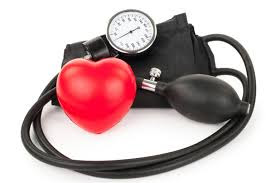Blood Pressure Control refers to regulating and maintaining healthy blood pressure levels. Blood pressure is the force exerted by the blood against the walls of the arteries as it circulates through the body. Blood pressure is measured in millimeters of mercury (mmHg) and is represented by two numbers - the systolic pressure (top number) and diastolic pressure (bottom number). Normal blood pressure is a systolic pressure of less than 120 mmHg and a diastolic pressure of less than 80 mmHg.
High blood pressure, also known as hypertension, is a common condition affecting millions worldwide.
It is a significant risk factor for heart disease, stroke, and kidney disease. Various factors, including genetics, age, lifestyle choices, and underlying medical conditions, can cause high blood pressure. Blood pressure control is essential for preventing these complications and maintaining overall health.
Lifestyle Modifications for Blood Pressure Control:
Several lifestyle modifications can help control blood pressure levels. These include:
Healthy Diet
Regular Exercise
Weight Management
Stress Management
Limiting Alcohol Consumption
Blood Pressure Control Medications:
In addition to lifestyle modifications, medications are often used to control high blood pressure. There are several classes of drugs used to treat hypertension, including:
Diuretics
Angiotensin-Converting Enzyme (ACE) Inhibitors
Angiotensin II Receptor Blockers (ARBs)
Calcium Channel Blockers
Beta-Blockers
Renin Inhibitors
Medicine for Blood Pressure Control:
Medications for blood pressure control are available by prescription only. Working closely with a healthcare provider to determine the most appropriate drug and dosage for individual needs is essential. Some common Medicine for Blood Pressure Control include:
Amlodipine
Amlodipine is a calcium channel blocker used to treat high blood pressure. It works by relaxing the blood vessels, which allows blood to flow more easily and reduces blood pressure.
Amlodipine is typically taken once a day, with or without food, and can take up to two weeks to reach its full effect.
Lisinopril
Lisinopril is an ACE inhibitor that is used to treat high blood pressure. It works by relaxing blood vessels, which allows blood to flow more easily and reduces blood pressure. Lisinopril is typically taken once daily, with or without food, and can take several weeks to reach its full effect.
Losartan
Losartan is an ARB that is used to treat high blood pressure. It works by blocking the action of angiotensin II, a hormone that constricts blood vessels and raises blood pressure. Losartan is typically taken once a day, with or without food, and can take several weeks to reach its full effect.
Hydrochlorothiazide
Hydrochlorothiazide is a diuretic that is used to treat high blood pressure. It reduces the amount of fluid in the blood vessels, lowering blood pressure. Hydrochlorothiazide is typically taken once daily, with or without food, and can take several weeks to reach its full effect.
Metoprolol
Metoprolol is a beta-blocker that is used to treat high blood pressure. It works by reducing the heart's workload and decreasing the production of angiotensin II, which lowers blood pressure. Metoprolol is typically taken once or twice a day, with or without food, and can take several weeks to reach its full effect.
Herbal Medicine for Blood Pressure Control:
In addition to prescription medications, some individuals may use Herbal Medicine for Blood Pressure Control. Herbal medicines are derived from plants and may have fewer side effects than prescription medications. However, it is essential to note that herbal medicines can interact with prescription medications and should be used cautiously.
Garlic
Hibiscus
Hawthorn
Ginger
Cinnamon
Conclusion:
Blood Pressure Control is essential for preventing complications and maintaining overall health. Lifestyle modifications such as a healthy diet, regular exercise, weight management, stress management, and limiting alcohol consumption can help lower blood pressure. Medications such as diuretics, ACE inhibitors, ARBs, calcium channel blockers, beta-blockers, and renin inhibitors are available by prescription to treat high blood pressure. Herbal medicines such as garlic, hibiscus, hawthorn, ginger, and cinnamon may also moderately affect blood pressure. Still, they should be used with caution and under the guidance of a healthcare provider.
It is important to note that high blood pressure can have severe consequences if left untreated. These consequences can include heart attack, stroke, kidney damage, and vision loss. If you have been diagnosed with high blood pressure, working with your healthcare provider to develop a treatment plan that works for you is essential.
In addition to medication and lifestyle modifications, regular blood pressure monitoring is essential to ensure it remains within a healthy range. Home blood pressure monitors are available for purchase and can be used to track blood pressure at home. It is also recommended to have regular blood pressure checks with a healthcare provider.
In conclusion, blood pressure control is crucial for maintaining overall health and preventing serious complications. Lifestyle modifications and medications can help lower blood pressure, and herbal medicines may also have a role in blood pressure control. However, working with a healthcare provider to develop an individualized treatment plan and regularly monitor blood pressure to ensure it remains within a healthy range is essential.





No comments:
Post a Comment